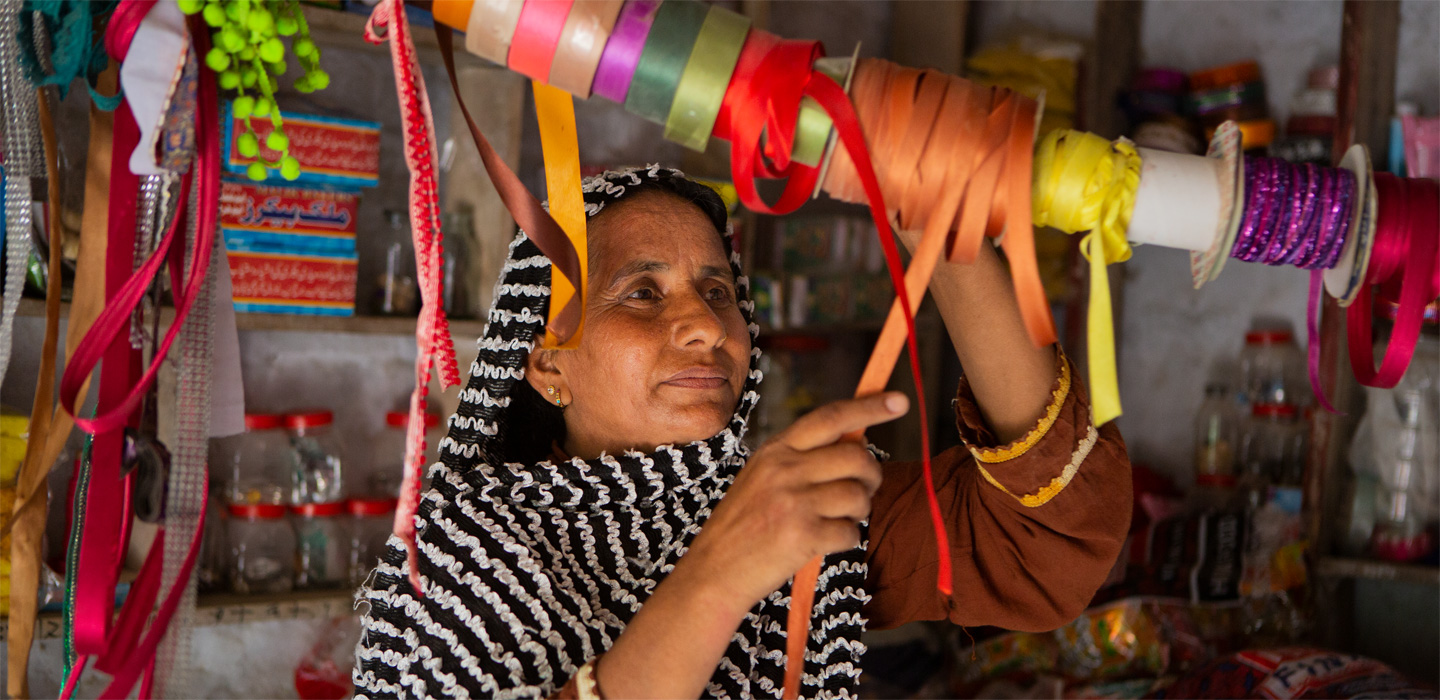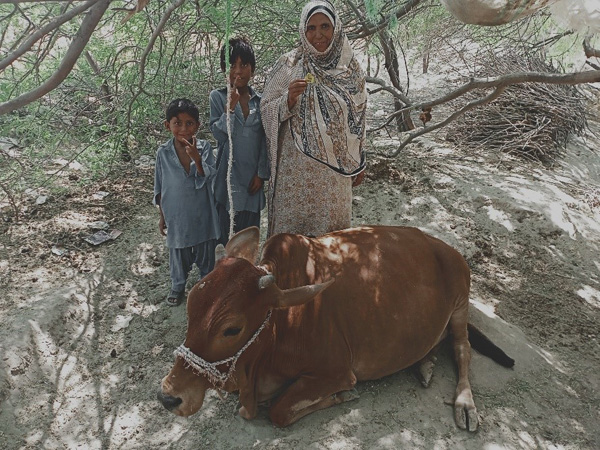Holding on: IFAD-supported programme sustains assets – and rural livelihoods
IFAD Asset Request Portlet
Asset Publisher
Holding on: IFAD-supported programme sustains assets – and rural livelihoods
Estimated reading time: 3 minutes
©IFAD/Chris McMorrow
When COVID-19 came to rural Pakistan, daily life came to a standstill.
The shops were shuttered and dark. The street food vendors and fruit sellers were nowhere to be seen. The streets were empty of familiar faces. All of these effects were the result of movement restrictions and curfews put in place by the government to contain the spread of the virus. But as has happened in many places around the world, these measures dealt a significant blow to Pakistan’s economy. Although designed to keep the population safe and healthy, they might nevertheless have spelled severe losses for many rural businesses – if not for programmes like the IFAD-supported NPGP and its NPGP-Plus component.
A question of value: Assets in the time of pandemic
Sado Mai lives in Pakistan’s rural Dera Ghazi Khan district. She and her husband are day labourers who depend heavily on local commerce to sustain their 10-member household. Before COVID-19, it used to be easy to find work – but since the beginning of lockdown, it’s much harder to come by, and what little work there is to do is often located far away.
Some time ago, her household had joined the NPGP programme, an initiative jointly supported by IFAD and the Government of Pakistan intended to help ultra-poor and poor rural households graduate out of poverty. Under NPGP, her household, like many others, was given an asset designed to help them start a small business. She, like some others, received livestock to raise; others were given tools and equipment.
But at the height of the lockdown, Sado Mai began to grapple with the idea that the calf she had been given might be too expensive to keep. With work being scarce, she couldn’t be sure that continuing to feed and shelter it was the best use of the little income her household was still able to bring in. And if anyone in the household were to get sick, selling it off would be the only way to afford health care in the first place.
Soon, NPGP’s implementing partners on the ground began reporting that many participant households faced the same dilemma. Families across Pakistan were experiencing drastic income losses – and some even had to cut back on food. As the lockdown dragged on and financial pressures mounted, many participants felt torn between keeping their assets in hopes of potential future income and selling them to ease immediate cash flow needs. Sewing machines, barbers’ shears, welding torches: the value of the objects that once represented a path out of poverty now seemed to shift daily.
NPGP-Plus: Immediate aid allows for renewed opportunities
From the earliest days of the lockdown, NPGP and its implementing partners had begun assessing the realities faced by their participants. Through discussions with their implementing partners and conducting their own assessments, the answer soon became clear. In order to navigate these realities, and to avoid selling off their assets, their participants would need immediate relief in the form of a cash transfer – and so, the idea of NPGP-Plus was born.
NPGP-Plus builds on the existing NPGP programme infrastructure. It is designed to allocate a specific sum of cash to each participating household as start-up or working capital, specifically to be used for the protection of the asset provided to the household. Those with livestock, for example, can use it to purchase fodder. Others might put it towards covering a small shop’s monthly expenses, or perhaps maintenance costs for their machinery.
 |
| Sado Mai and her grandsons pause for a photo with their calf. |
The NPGP-Plus allocations are part of NPGP’s asset provisions. They’re offered in addition to other immediate relief initiatives, including assistance packages and disbursements managed under the COVID-19 Emergency Response Fund by the Pakistan Poverty Alleviation Fund, NPGP’s Lead Programme Agency in the country.
Sado Mai’s family is already reaping the benefits. They were pleasantly surprised when the NPGP team came to visit – and overjoyed when the team presented them with the assets they needed. Within a few months, they’ll have enough milk from their calf for Sado Mai to give to her children – and plenty left over to sell, too. She and her family are grateful for all the assistance they’ve received under the various relief initiatives.
Today, NPGP staff are cautiously optimistic. The provision of assets, trainings and interest-free loans to the programme’s nearly 177,000 participating ultra-poor and poor households is under way. They hope that NPGP-Plus funds, along with these interventions, will help participants hold on to their assets even as the economic effects of the pandemic play out, ensuring that they will be able to use them again when the situation improves. This will not only allow them the chance to get the most use out of them for the longest possible time – it will hold open the door to a profitable business, and all the opportunities it holds, on the other side of the crisis.
Learn more about IFAD’s work in Pakistan.
Publication date: 25 August 2020